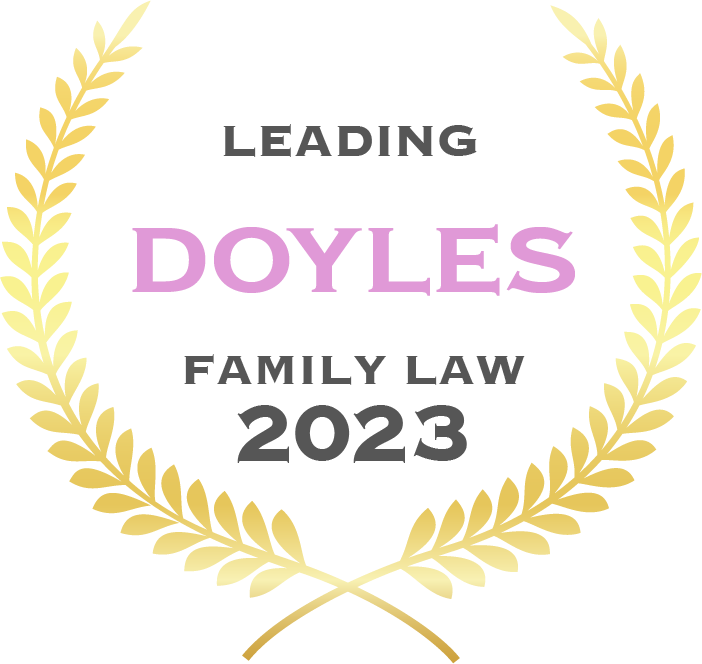How can I resolve my family law matter without going to court?
Often, once lawyers are engaged in a family law matter, resolving parenting matters and the division of the property amicably and cost effectively may seem difficult. However, alternative dispute resolution (ADR) will, in most cases, assist parties in reaching agreement and avoid a potentially costly and lengthy dispute in court proceedings.
What is ADR?
ADR refers to the different processes of dispute resolution that does not include court proceedings. This can include processes with or without the presence of an independent third party, such a mediator, who can assist during the negotiations.
Are there different types of ADR?
Yes and our family law team provides readily accessible avenues for ADR, while continuing to provide expert advice to ensure the best possible outcome for you.
There are a number of different ADR options that may be suitable to you, and our team can advise you as to which one is the right option in your specific circumstances:
Family Dispute Resolution
In parenting matters, parties are required to participate in Family Dispute Resolution (FDR) prior to applying to the Federal Circuit and Family Court of Australia (the Court) for a decision regarding their children, except in circumstances of family violence and/or urgency.
FDR is a form of a private mediation which occurs through a privately funded service provider. There are many organisations who offer this service. Usually, FDR occurs without lawyers being present, together with a Family Dispute Resolution Practitioner (FDRP).
There are also some services that offer FDR for property matters.
However, our experienced team of family lawyers can still assist you during the process and help you to determine if your matter is urgent and/or involves family violence and could potentially bypass the requirement to participate in FDR. We can also assist you in the “background” while you go participate in FDR.
Negotiation through lawyers
Negotiation is often the first method of ADR that parties participate in. Negotiation usually involves the lawyers for each party negotiating on their client’s behalf. This ADR method does not include an independent third party and the negotiations happen privately on a “without prejudice basis”.
Negotiations on a “without prejudice basis”, generally means that negotiations are not able to be used in court should your matter progress to litigation. This is often helpful in setting disputes as parties can participate genuinely in the negotiations and make a real attempt to reach agreement.
Negotiation by lawyers can include verbal negotiation (telephone discussions), written negotiation (emails or letters) and in person negotiation (Round Table Conference or Private Mediation).
Round Table Conference
A Round Table Conference is similar to a mediation, however, it is conducted as a conference between the parties and their lawyers without the presence of a third party such as a mediator.
However, unlike mere negotiation that often occurs in back and forth communication between the lawyers, a Round Table Conference is a meeting of the parties and their lawyers with the goal to come to agreement by the end of the conference.
Mediation
Mediation is a conference between both parties and their lawyers with the presence of a mediator. The role of a mediator is to be an independent third party who facilitates discussions between the parties with a view to negotiating and resolving the matter with the assistance of their lawyers.
Mediation is generally a structured process, which includes individual sessions with the mediator as well as joint sessions with the parties’ lawyers, if appropriate. Often parties will brief a barrister to negotiate on their behalf at mediation where there are complex issues involved or a large asset pool to divide between the parties.
The mediator helps the parties to narrow the issues in dispute and define each parties’ goals for resolution. The mediator also helps the parties to navigate their way to a resolution that works best for them.
Mediation can occur prior to a court application being made and also after court proceedings have started as means of resolving the dispute without going to a Final Hearing (also known as a trial).
Arbitration
Arbitration is a process in which parties to a financial dispute present arguments and evidence to an independent arbitrator, who makes a legally enforceable determination (called an award) to resolve the dispute.
Parties agree on who is to be appointed as the arbitrator (usually a senior member of the legal profession) and, with the consent of all parties, the Court may make an order referring the current court proceedings to arbitration. This can be registered with the Court and is enforceable as a Court Order.
Child support and parenting matters cannot be arbitrated.
There are different methods of hearings:
- On the papers. There is no hearing and works best where the facts are generally agreed but the parties cannot agree on the outcome or how the law applies to their case. It can be done on interim issues (short term) or final issues.
- On the papers with oral submissions but no cross-examination of witnesses.
- Full hearings with cross-examination of witnesses.
What are the benefits to ADR?
There are many benefits to ADR.
One of the benefits, is cost. Reaching a resolution via ADR will assist in managing your legal costs, particularly if ADR avoids the need for court proceedings.
Another benefit is time. Participating in ADR ought to assist you in coming to a resolution quicker and being able to move on to the next chapter of your life sooner. Issuing court proceedings, on the other hand, may result in a trial not occurring for months or even years, which can also cause prolonged stress, in addition to the associated costs of trial.
Lastly, an important benefit of ADR is that the resolution you come to is one that you get to help decide. You will have a hand in creating a solution that is tailored to you and that you can live with.
If your matter proceeds to a Final Hearing, the decision making process is taken out of your hands and into the courts’. Whereas through ADR, you decide what agreement you are comfortable with and the terms of that agreement, provided that the other party to the dispute, also agrees.
How much does ADR cost?
The cost of ADR depends on the method used and the circumstances of your case.
One of our experienced lawyers will provide you with an indication of cost for your matter in your initial consultation.
How can I record our agreement if ADR is successful?
You can formalise parenting matters in one of two ways. This is explained in more detail here.
You should formalise your property matters either through Consent Orders or a Financial Agreement.
A Consent Order is a written agreement that is approved by a Judicial Registrar of the Court, provided it is considered to be a fair and appropriate agreement.
The relevant agreement is drafted in legal terms and signed by the parties. The Application is then sent to the Court for approval. Once approved, the Court will formally make the agreement into Court Orders which are legally binding. The Court can impose penalties if one or both of the parties refuses to follow the Orders.
If agreement has been reached about all issues and the agreement is fair, obtaining Consent Orders is usually a straightforward process without the need to going to Court.
What if ADR fails and I have to issue court proceedings, what is the process?
Litigation is in most cases the last resort and if all efforts to negotiate and reach a settlement by consent have not been successful.
More information about going to Court can be found here.
How we can help
Reaching out to obtain advice about your particular family law matter can be daunting. Therefore, receiving the right advice is critical. Coulter Legal can assist you understand your options, your entitlements (in property settlement matters), and the best course of action based on your individual and family circumstances.

